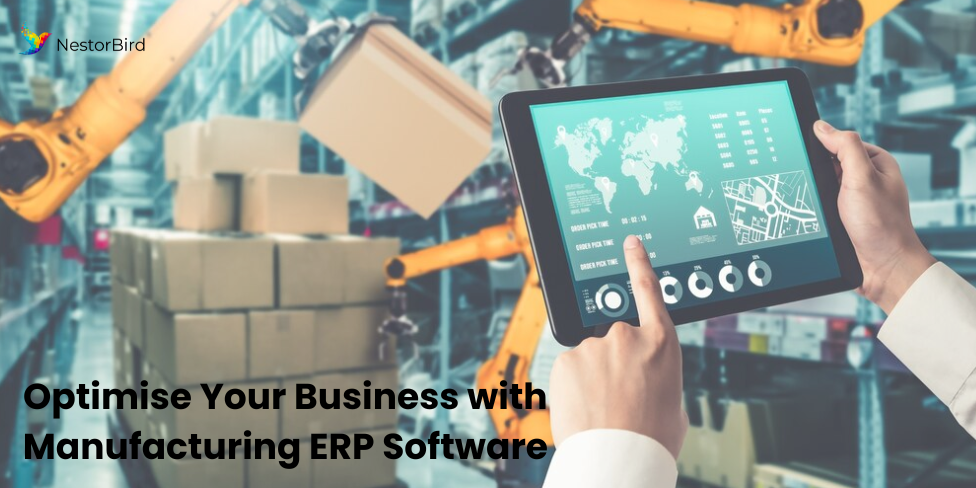
How can organizations maintain a competitive advantage while efficiently managing resources and operations? Choosing the right technology is frequently the solution. Manufacturing ERP has been an essential tool for companies looking to enhance operations, reduce costs, and boost output. But how does it work, and why is it important
What Is Manufacturing ERP Software?
At its core, Manufacturing ERP software is designed to manage and integrate the essential processes of a manufacturing business. ERP is the backbone of the company, supporting inventories, production, finance, and human resources.
Consider it the conductor of an orchestra, ensuring that all departments operate in unison. What was the result? Smarter workflows, less inefficiencies, and better decisions.
Key Features of Manufacturing ERP Software:
1. Inventory Management.
Efficiently tracking raw resources and completed goods is critical. The manufacturing ERP system provides real-time visibility into inventory levels, ensuring that materials are available when needed while avoiding overstocking.
2. Production Planning.
How do you ensure that production schedules match demand? ERP enables firms to establish dynamic production plans that adapt to changing needs, reducing downtime and increasing output.
3. Financial Management.
An integrated ERP system compiles financial data, providing insights into costs, sales, and profits. This transparency allows businesses to make more educated financial decisions.
4. Reporting and Analytics
Data-driven decisions are the future. manufacturing ERP system offers comprehensive reporting and analytics tools, turning complex data into actionable insights.
Benefits of Implementing ERP Software in Manufacturing
1. Improved Efficiency
ERP automates repetitive tasks, reducing manual intervention and potential errors. This leads to faster processes and better resource utilization.
2. Enhanced Collaboration
With a centralized system, teams across departments can access the same data, fostering collaboration and reducing miscommunication.
3. Cost Savings
By optimizing inventory, reducing waste, and streamlining workflows, ERP contributes to significant cost reductions.
4. Scalability
Planning to grow your business? manufacturing ERP systems are designed to scale with you, making it easier to add new processes, products, or locations.
5. Better Customer Satisfaction
Timely deliveries, consistent product quality, and responsive service—all made possible by ERP—translate to happier customers.
Challenges in Adopting ERP Software
While the benefits are undeniable, implementing ERP comes with its challenges:
- Initial Costs: ERP systems can require a substantial upfront investment. However, the long-term ROI often justifies the expense.
- Change Management: Employees may resist adopting new systems. Providing training and demonstrating the value of ERP can ease this transition.
- Customization Needs: Every business is unique. Customizing ERP software to meet specific needs can be time-consuming.
How to Choose the Right ERP Software for Your Business
1. Define Your Needs
What are your business goals? Identifying your priorities will help narrow down your options.
2. Consider Scalability
Choose a system that can grow with your business, accommodating new processes and expansions.
3. Evaluate User-Friendliness
A complex system can deter employees. Opt for software that’s intuitive and easy to use.
4. Check for Integration Capabilities
Can the ERP system integrate with your existing tools? Seamless integration minimizes disruptions.
5. Seek Vendor Support
The right vendor will offer ongoing support, ensuring smooth implementation and usage.
Conclusion:
Manufacturing ERP software is more than a tool—it’s a strategic investment. By automating processes, enhancing visibility, and improving decision-making, it equips businesses to thrive in an ever-evolving market.
Are you ready to optimize your business operations and unlock new growth opportunities? Embracing ERP software might just be the key to staying ahead of the curve.













